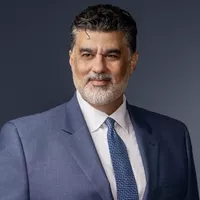- within Wealth Management topic(s)
On September 6, 2024, the US Department of Commerce's Bureau of Industry and Security (BIS) published an interim final rule (IFR) issuing new export controls on quantum computing, semiconductor, and other advanced technology, including adding Export Control Classification Numbers (ECCNs), revising existing ECCNs, adding a license exception, and adding certain deemed export carve-outs to new controls.
Below we summarize key aspects of the 30-page IFR's many technical updates and discuss the general impact of BIS's regulatory action, which harmonizes US export controls with those of "like-minded countries." Taken together, these changes expand controls on advanced technologies and warrant a reconsideration of existing compliance protocols.
NEW CONTROLS
As part of the export control harmonization effort, the IFR announces the addition of 18 ECCNs and the revision of nine existing ECCNs, all of which are now considered Integrated Export Control (IEC) items. The IEC items will be generally classified under the 900 series ECCNs ending in 900 to 979. To prevent confusion, existing ECCNs now designated IEC will not change.
The new controls also change license requirements and license exception availability for certain semiconductor production-related items. As described in a BIS press release announcing the IFR, the new controls cover:
- Quantum Computing Items: including quantum computers (4A906), Complementary Metal Oxide Semiconductor (CMOS) integrated circuits (3A901), cryogenic cooling systems (3A904), and other related equipment, components, materials, software, and technology that can be used to develop and maintain quantum computers.
- Advanced Semiconductor Manufacturing Equipment: including extreme ultraviolet (EUV) masks and reticles (3B001), Scanning Electron Microscope (SEM) equipment (3B903), epitaxial and other materials (3C907 – 3C909), software designated to extract Graphic Design System II (GDSII) layout data (3D907), and other tools and machines that are essential for the production of advanced semiconductor devices.
- Gate All-Around Field-Effect Transistor (GAAFET) Technology: including technology that produces or develops high-performance computing chips that can be used in supercomputers (3E905).
- Additive Manufacturing Items: classified under 2B910, 2D910, and 2E910 and covering equipment, components and related technology and software designed to produce metal or metal alloy components, including advanced 3D printers.
GEOGRAPHIC APPLICABILITY OF NEW CONTROLS
To ensure that the newly controlled items are not used for purposes "contrary to U.S. national security or foreign policy," a "worldwide" license requirement has been imposed for national security ("NS") and regional security ("RS") reasons. It is worth noting that the controls apply to exports and reexports to countries not otherwise subject to NS and RS controls (including "Five Eye" allies Canada, UK, and Australia).
However, the IFR also creates a new License Exception Implemented Export Controls (LE IEC). When BIS determines that a country has implemented comparable controls on an item, the agency will add it to the "eligible items and destinations" list. LE IEC is currently generally available for Italy and the UK, while Australia, Canada, France, Germany, Japan, and Spain are eligible for certain ECCNs. Following future international export control harmonization, further additions are expected. Countries not eligible for LE IEC are subject to varying licensing policies ranging from presumption of approval to presumption of denial.
DEEMED EXPORT CARVE-OUTS
The IFR includes "grandfathering clauses" for deemed exports and reexports intended to ensure continued access to newly controlled technology and software by foreign person employees with preexisting access as of the effective date of the rule. Eligible foreign person employees will be able to maintain continuous access without a license. This carve-out is intended to "avoid disrupting the ongoing research and development of these critical and emerging technologies" and, depending on the ECCN and associated risk, is available on either a full or limited basis, though the latter category is not available for deemed exports to Country Groups D:1 (countries controlled for national security, including Kazakhstan, Laos, Tajikistan, and Yemen) and D:5 (U.S. arms-embargoed countries, including Belarus, China, Democratic Republic of Congo, North Korea, Lebanon, and Sudan).
IMPLEMENTATION TIMELINE
The IFR became effective on September 6, 2024. But exporters,
reexporters, and transferors of certain quantum computing items to
Country Group A:1 (Wassenaar-participating states, including
Belgium, Canada, Germany, Norway, and the UK) destinations are not
required to fully comply with new license requirements until
November 5, 2024.
Separately, IFR-related comments are due to BIS no later than
November 5, 2024.
NETHERLANDS ANNOUNCEMENT
While the details of the Dutch controls are outside the scope of this Legal Update, it is worth noting that, on September 7, 2024, the Netherlands announced new export controls applicable to advanced semiconductor manufacturing equipment. This effort expands on separate Dutch export controls announced in 2023 and earlier in 2024 and is part of the harmonization effort motivating the new US IEC controls.
CONCLUSION
While certain elements of the IFR—specifically, controls on quantum computing—had been anticipated, the rulemaking represents a significant regulatory step to counter the United States' strategic competitors by enhancing international export control cooperation and coordination. Potentially affected entities are encouraged to carefully review the IFR for commercially relevant changes and submit comments before the November 5 deadline.
Companies engaged in manufacturing, research and development, and export activity involving advanced technology potentially covered by these new rules will need to determine whether these controls and related license requirements apply to those activities and obtain any required licenses. This is the case even where such activities do not involve high-risk jurisdictions given the global nature of the newly imposed licensing requirements.
Visit us at mayerbrown.com
Mayer Brown is a global services provider comprising associated legal practices that are separate entities, including Mayer Brown LLP (Illinois, USA), Mayer Brown International LLP (England & Wales), Mayer Brown (a Hong Kong partnership) and Tauil & Chequer Advogados (a Brazilian law partnership) and non-legal service providers, which provide consultancy services (collectively, the "Mayer Brown Practices"). The Mayer Brown Practices are established in various jurisdictions and may be a legal person or a partnership. PK Wong & Nair LLC ("PKWN") is the constituent Singapore law practice of our licensed joint law venture in Singapore, Mayer Brown PK Wong & Nair Pte. Ltd. Details of the individual Mayer Brown Practices and PKWN can be found in the Legal Notices section of our website. "Mayer Brown" and the Mayer Brown logo are the trademarks of Mayer Brown.
© Copyright 2024. The Mayer Brown Practices. All rights reserved.
This Mayer Brown article provides information and comments on legal issues and developments of interest. The foregoing is not a comprehensive treatment of the subject matter covered and is not intended to provide legal advice. Readers should seek specific legal advice before taking any action with respect to the matters discussed herein.




